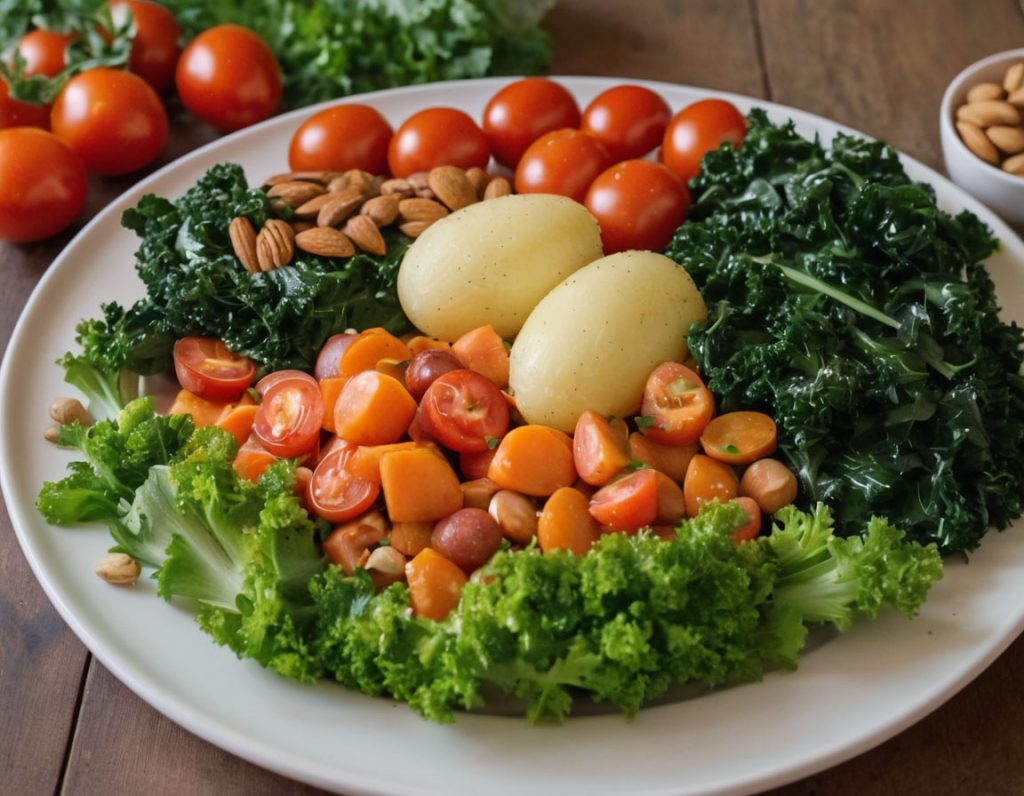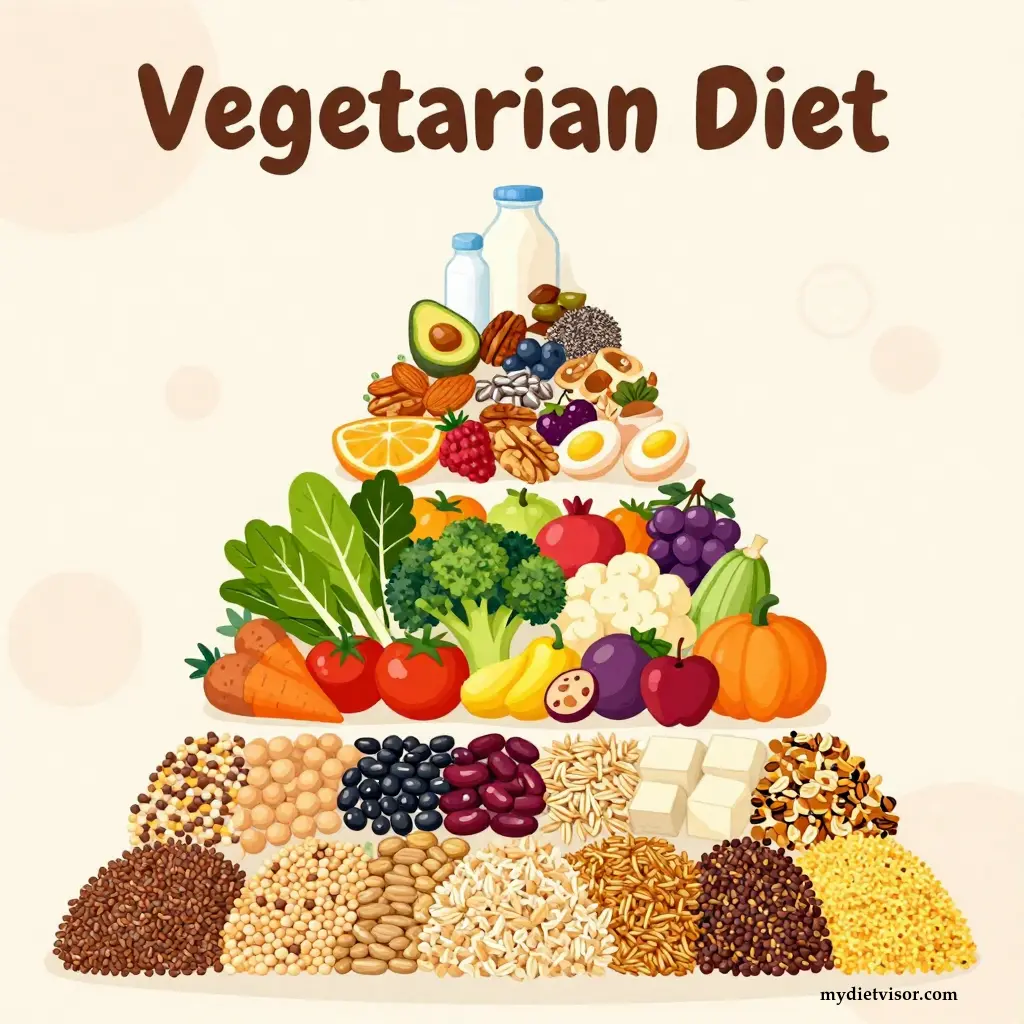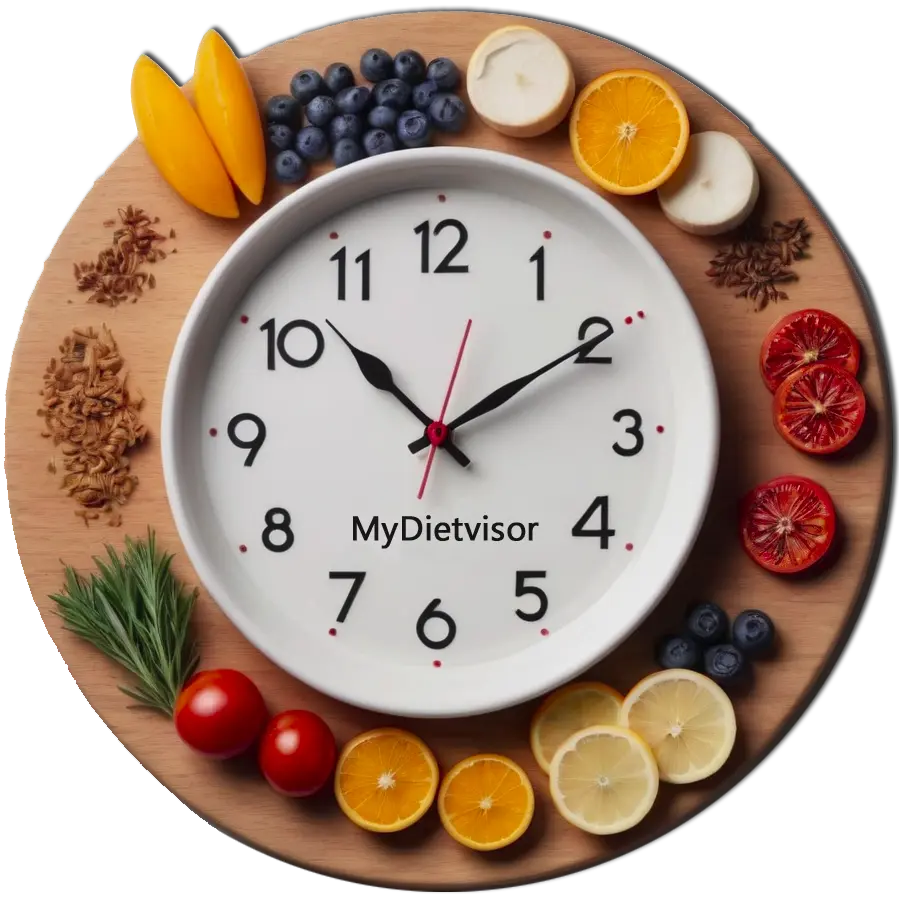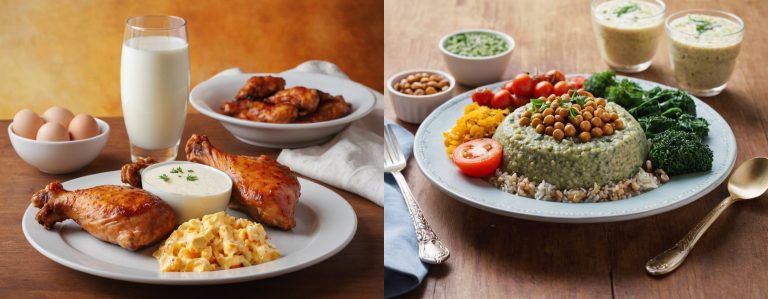The Vegetarian Diet: A Journey Through History, Health, and Culture

A vegetarian diet – one that excludes meat, poultry, and fish – has evolved from ancient philosophical teachings into a modern movement that blends ethics, wellness, and sustainability. The word vegetarianism was first coined in 1847 by the British Vegetarian Society, yet the practice itself stretches back thousands of years. Pythagoras, around 500 BCE, championed a meat‑free lifestyle for compassion, while Buddhist monks have long adhered to strict vegetarian principles. Across cultures, vegetarian eating has become an integral part of religious observances – from Hindu rituals to Jain vows – highlighting its deep spiritual roots.
Modern science confirms the diet’s many benefits. Research shows that regular vegetarian eating lowers the risk of heart disease, hypertension, type 2 diabetes, and certain cancers while providing a rich array of essential nutrients when meals are well planned. Athletes, children, and older adults can all reap the advantages of plant‑based proteins, fortified foods, and diverse micronutrients, ensuring that a vegetarian menu can support performance, growth, and healthy aging.
Even the culinary world has embraced this philosophy: the first vegetarian restaurant opened in London’s West End in 1889, proving that gourmet, plant‑based fare can be both delicious and innovative. This article will explore the vegetarian diet’s origins, its many variations, and how to design balanced meals for every stage of life, offering a comprehensive guide for those curious or committed to this nourishing path.
Food List Vegetarian Diet

Fruits:
- Berries (strawberries, blueberries, raspberries)
- Citrus fruits (oranges, grapefruits, lemons)
- Tropical fruits (mangoes, pineapples, coconuts)
- Stone fruits (peaches, apricots, plums)
- Melons (watermelon, cantaloupe, honeydew)
Vegetables:
- Leafy greens (spinach, kale, lettuce, collard greens)
- Cruciferous vegetables (broccoli, cauliflower, cabbage, Brussels sprouts)
- Root vegetables (carrots, sweet potatoes, beets, parsnips)
- Alliums (onions, garlic, leeks)
Proteins:
- Legumes:
- Beans: kidney, black, pinto, cannellini, chickpeas
- Lentils: green, brown, red
- Peas: split peas, green peas
- Tofu and tempeh (soy-based products)
- Nuts and seeds: almonds, walnuts, chia seeds, pumpkin seeds
Whole Grains:
- Quinoa, brown rice, bulgur, millet, oats
- Whole wheat bread, pasta, cereals
Healthful Fats:
- Avocados
- Nuts and nut butters: cashews, almond butter
- Seeds: flaxseeds, hemp seeds
- Plant-based oils: olive oil, coconut oil, avocado oil
Benefits of a Vegetarian Diet
- Nutrient-rich: A well-planned vegetarian diet can provide an abundance of vitamins, minerals, fiber, and antioxidants.
- Lower in saturated fats: By excluding or limiting animal products, vegetarians typically consume less saturated fat, promoting heart health.
- Higher in dietary fiber: Plant-based foods are rich in fiber, supporting digestive health and promoting feelings of fullness.
- Potential weight management: Due to their lower calorie density and higher nutrient content, plant-based diets may aid in weight loss or maintenance.
- Environmentally friendly: Vegetarian diets generally have a smaller carbon footprint than diets heavy in animal products.
Advantages and Disadvantages of Vegetarian Diet
A vegetarian diet offers numerous benefits but also has some potential drawbacks. Here’s a breakdown of the pros and cons of a vegetarian diet:
Pros of Vegetarian Diet:
- Nutrient-rich: Vegetarian diets tend to be rich in vitamins, minerals, fiber, and antioxidants due to their emphasis on fruits, vegetables, whole grains, nuts, seeds, and legumes.
- Lower saturated fat intake: By excluding or limiting animal products, vegetarians typically consume less saturated fat, which can lead to improved heart health and reduced risk of certain diseases like heart disease and type 2 diabetes.
- Higher fiber consumption: Plant-based diets are rich in dietary fiber, promoting better digestive health, blood sugar control, and weight management.
- Potential weight loss or maintenance: Vegetarian diets generally have lower calorie densities than omnivorous diets, making them suitable for weight loss or maintenance.
- Reduced risk of certain diseases: Studies suggest that vegetarians may have a lower risk of developing conditions such as colorectal cancer, high blood pressure, and osteoarthritis.
- Environmentally friendly: Vegetarian diets require fewer natural resources (land and water) and generate fewer greenhouse gas emissions compared to meat-based diets, contributing to reduced environmental impact.
- Animal welfare considerations: By choosing not to consume animal products, vegetarians may feel they are supporting better treatment of farm animals.
- Food variety and exploration: A vegetarian diet encourages trying new recipes, cuisines, and ingredients, leading to a more diverse and interesting eating experience.
Cons of Vegetarian Diet:
- Nutrient deficiencies:
- Vitamin B12: Primarily found in animal products, vitamin B12 is essential for neurological function and blood formation. Deficiency can occur without proper supplementation or fortified foods.
- Iron: Although plant-based iron sources exist (e.g., leafy greens, legumes), the body absorbs iron from animal sources more efficiently. Vegetarians should consume adequate calories and ensure their diet includes sufficient iron-rich plant foods to prevent deficiency.
- Calcium: While many plant-based calcium sources are available (e.g., leafy greens, fortified plant milks), ensuring adequate intake is crucial for bone health, especially during childhood and adolescence.
- Vitamin D: Primarily obtained from sunlight exposure, vitamin D can be deficient in individuals who do not consume fortified foods or supplements, particularly those with limited sun exposure.
- Protein concerns:
- Some people worry about obtaining enough protein on a vegetarian diet. However, plant-based protein sources like legumes, nuts, seeds, whole grains, and soy products provide ample opportunities to meet protein needs.
- Potential higher carbohydrate intake: Without careful planning, vegetarian diets may inadvertently lead to increased consumption of refined carbohydrates, which can contribute to weight gain and other health issues if not balanced with adequate fiber and whole foods.
- Social challenges:
- Eating out, attending social events, or visiting family and friends might present difficulties due to limited food options or misunderstandings about the vegetarian diet.
- Potential athletic performance concerns:
- While a well-planned vegetarian diet can support most athletes’ needs, strength and power athletes may need to pay closer attention to adequate calorie consumption and proper supplementation to meet their nutritional requirements.
- Cooking skills and meal planning:
- Transitioning to a vegetarian diet may require developing new cooking skills and learning how to plan balanced meals centered around plant-based ingredients.
The pros of a well-planned vegetarian diet – such as improved nutrient intake, lower saturated fat consumption, and reduced environmental impact – generally outweigh the cons. However, careful attention should be paid to potential nutrient deficiencies, protein concerns, and other challenges that may arise with this dietary approach. As always, consulting with a healthcare professional or registered dietitian can help ensure that individual nutritional needs are met on a vegetarian diet.
Weight Gain or Loss while on Vegetarian Diet
A well-planned vegetarian diet can support both weight gain and loss, depending on the individual’s specific nutritional needs and calorie requirements. Here’s how a vegetarian diet can influence weight management:
Weight Gain:
- Caloric surplus: To gain weight on a vegetarian diet, consume more calories than your body burns each day. This can be achieved by incorporating energy-dense foods like nuts, seeds, avocados, dried fruits, and fortified plant milks into the diet.
- Healthy fats: Include sources of healthy monounsaturated and polyunsaturated fats such as olive oil, avocados, chia seeds, hemp seeds, walnuts, and almonds to boost calorie intake while providing essential nutrients for overall health.
- Whole grains: Incorporate calorie-dense whole grains like brown rice, quinoa, oats, and granola to increase daily calorie consumption.
- High-calorie vegetables: Opt for starchy vegetables with higher calorie counts, such as potatoes, sweet potatoes, butternut squash, and corn, to add more calories to your meals.
- Protein sources: Consume adequate amounts of plant-based proteins like beans, lentils, chickpeas, tofu, tempeh, and nuts to support muscle growth and overall health during weight gain.
Weight Loss:
- Caloric deficit: To lose weight on a vegetarian diet, consume fewer calories than your body burns each day. Create a caloric deficit by reducing portion sizes, limiting energy-dense foods, and increasing physical activity.
- High-fiber foods: Focus on consuming high-fiber plant foods like fruits, vegetables, whole grains, beans, and lentils to promote satiety and support weight loss through improved digestion and increased feelings of fullness.
- Low-fat diet: Limit your intake of added fats, especially saturated fats found in animal products (which are not typically consumed on a vegetarian diet), to help reduce calorie consumption and promote weight loss.
- Plant-based proteins: Opt for lower-calorie plant-based protein sources like tempeh, edamame, and sprouted grains while still consuming adequate protein to support overall health during weight loss.
- Meal planning and portion control: Plan your meals in advance and monitor portion sizes to help manage calorie intake and promote weight loss success.
General Tips for Weight Management on a Vegetarian Diet:
- Balance your macronutrients: Aim for an appropriate balance of carbohydrates, proteins, and healthy fats in your diet to support overall health and optimize weight management goals.
- Stay hydrated: Drink plenty of water throughout the day to support digestion, nutrient absorption, and maintain proper bodily functions.
- Regular exercise: Engage in regular physical activity to help create a caloric deficit for weight loss or maintain a caloric surplus for weight gain.
- Monitor your progress: Track your weight and measurements regularly to assess your progress toward your goals and make adjustments as needed.
Sample Meal Plans:
Weight Gain:
- Breakfast: Overnight oats with rolled oats, chia seeds, almond milk, banana, peanut butter, and granola
- Lunch: Quinoa salad with chickpeas, mixed vegetables, avocado, walnuts, and olive oil dressing
- Snack: A handful of mixed nuts and dried fruit
- Dinner: Lentil shepherd’s pie with mashed sweet potatoes and a side of whole-grain bread
Weight Loss:
- Breakfast: Green smoothie with spinach, banana, blueberries, almond milk, and a scoop of plant-based protein powder
- Lunch: Grilled vegetable sandwich on whole-grain bread with hummus and a side of carrot sticks
- Snack: Apple slices with almond butter
- Dinner: Stir-fried tofu with mixed vegetables, brown rice, and a small portion of edamame
Vegetarian Diets for Different Life Stages
Babies and toddlers: Introduce a variety of fruits, vegetables, and whole grains as purées or soft cooked foods. Include age-appropriate proteins like lentils, tofu, and beans, and provide calcium-fortified plant milks once dairy is discontinued.
Children and teens: Encourage children to explore different fruits, vegetables, and proteins while ensuring they consume adequate calories for growth and development. Involve kids in meal planning and preparation to foster a lifelong appreciation for healthy eating.
Pregnancy: Pregnant vegetarians should prioritize consuming sufficient calories, protein, calcium, iron, and folate. Work with a healthcare provider or registered dietitian to ensure proper nutrition during pregnancy and lactation.
Transitioning to a vegetarian diet: Gradually incorporate more plant-based foods into your meals, focusing on adding rather than subtracting foods. Experiment with new recipes and ingredients to maintain variety and enjoyment in your eating pattern.
Suggestions for a Balanced Vegetarian Diet
- Consume a variety of fruits and vegetables: Aim for at least five servings per day from different colors to maximize nutrient intake.
- Include adequate protein sources: Strive for around 0.8-1 gram of protein per kilogram (0.36-0.45g/lb) of body weight daily, focusing on combinations like beans and rice or chickpeas with avocado.
- Fortify your diet with essential nutrients:
- Vitamin B12: fortified foods (plant milks, cereals), supplements
- Iron: leafy greens, lentils, fortified plant milks, whole grains, nuts, seeds
- Calcium: fortified plant milks, leafy greens, tofu prepared with calcium sulfate, almonds
- Vitamin D: sunlight exposure, fortified foods (plant milks), supplements
- Monitor your sodium intake: Focus on natural sources of sodium found in fruits and vegetables rather than processed foods.
- Stay hydrated: Aim for at least eight cups of fluid daily from water, herbal teas, and low-sugar beverages.
Types of Vegetarian Diets
- Lacto-ovo vegetarians: Exclude meat, poultry, fish, but consume eggs and dairy products.
- Lacto vegetarians: Exclude meat, poultry, fish, and eggs, but consume dairy products.
- Ovo vegetarians: Exclude meat, poultry, fish, and dairy products, but consume eggs.
- Pescatarian: Consume fish and sometimes other seafood but exclude meat from their diet.
- Flexitarian: Primarily vegetarian but occasionally consume meat or fish in small quantities.
- Vegan: Exclude all animal-derived ingredients, including honey and some refined sugars.
Conclusion
Vegetarian diets offer a wealth of benefits when well-planned, including nutrient richness, lower saturated fat intake, and potential weight management support. With various types and considerations for different life stages, there’s ample room for personalization based on preferences and needs. By focusing on variety, adequate protein sources, and essential nutrients, vegetarians can enjoy balanced diets tailored to their unique requirements.



